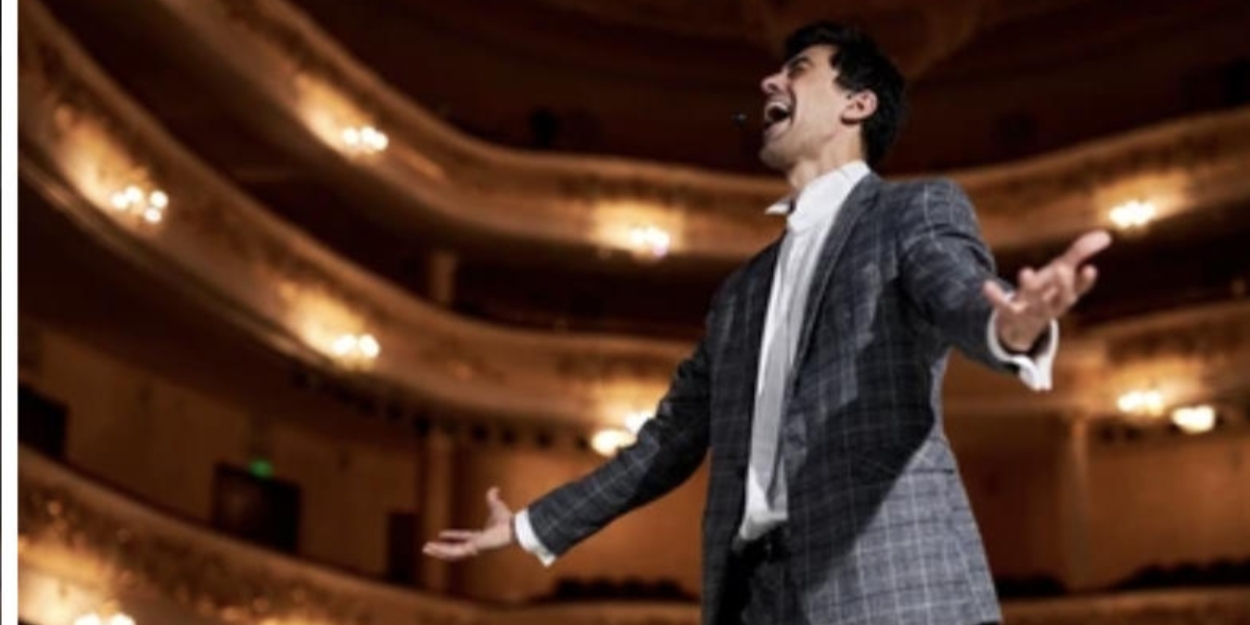Student Blog: Why Do We Sing?
Great Comet & Gone Missing

My first show of 2025 is Gone Missing by The Civilians and Michael Friedman. Aysan Celik, an original Civilians member and the wonderful director of this production, brought me aboard for this thrilling project as the assistant music director to musical superhuman Dr. Kyle Blair. At our first rehearsal, Kyle discussed his thoughts about why it is we sing in theater, connecting back to the principles of opera and the overflow of emotion that exceeds what dialogue can hold. I thought I would talk a little more about it.
One of the things that gets me the most excited about music in theater is the way it comes alive. A good score can be a living, breathing organism that fills the volume of the theatrical container. My favorite example happens to also be my favorite musical: Natasha, Pierre and the Great Comet of 1812. Sole auteur Dave Malloy found dozens of ways to make the piano a character in the story and a scene partner to the actors, telling a hidden part of the story nonverbally.
Take “Dust and Ashes.” Pierre’s tempestuous superstorm of an aria right after surviving the duel with Dolokhov is a turbulent six-minute journey that ends with a triumphant resolution: Pierre wants to be and feel alive. To begin a pseudo-chorus, he sings the most-remembered line of War and Peace, “they say we are asleep until we fall in love,” which he gives a far-off air and defeated attitude at first. But when he repeats the passage later in the song, he belts the final word acapella, and the silence hangs in the air after the actor cuts it off until he begins the next line— “and I’m so ready to wake up now—” making up his mind that his life will never again resemble what it has been for so long.
The piano does not rejoin him until he makes this decision for himself. He has to be the one to reset his own trajectory. The music, nor anyone in his life, will never make that happen for him. It all has to come from within. Once he accomplishes this, the mournful tone of the song is left behind in favor of a raucous climb as he affirms his promise to himself. The Pierre that ends the song is unrecognizable from the Pierre that began it, and his decision to turn his life around is one that he needed to make intrinsically in order for the story to move forward. All of that was determined by the music itself.
Bringing it back to the piece I’m working on, Gone Missing is a documentary musical about a collection of strangers in post-9/11 New York City attesting to the things that they’ve parted ways with over the years. A job, a husband, and even a Gucci pump take turns at the center of attention. At the core are Friedman’s nine breakup songs, each drawing from a completely different genre, cleverly scoring how each person’s life has changed.
A perfect example would be the Latin ballad “Bodega.” Khan, the character who sings it, lost his job and is very frustrated with the world around him, initially being reluctant to discuss this hardship since he doesn’t think it would be suitable for the documentary. He instead starts singing. Notably, he starts singing in Spanish. To me, that means these emotions he’s feeling are not only too powerful for dialogue to be a suitable vessel, but the English language itself also cannot contain it.
The staging features the audience joining him to sing the chorus as if it’s a beloved tune they’d all show up for at a concert, but then a couple minutes later, the singer returns alone. He recites the lyrics in English as a spoken-word poem. This unaccompanied version is likely, for many audience members, their first real engagement with these words. Without accompaniment, this monologue about losing a wallet containing the only picture he had of his lost love becomes another instance where the character has to find the strength to go on without the aid of the music. He mourns this loss because he knows that if that wallet is gone, “a person who could be anybody who goes to that store now has your photo” and there’s nothing he can do about it. But he only will admit this through heightened language. In normal dialogue, he remains dodgy about choosing something he lost because he assumes his story isn’t worth the interviewers’ time. Thus, the music becomes a vehicle for his feelings.
Both cases showcase a character with an intense wave of emotions washing over them and no way to communicate that without the power of music. This principle of theatricality is one of the most special things about our art form, and just one of the many reasons why I find theater to be the coolest thing in the world.
Comments

Videos


